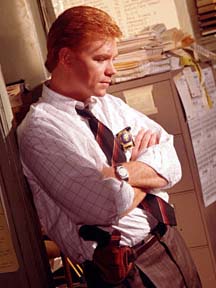This morning, I broke a mug. I had rearranged some spices on a shelf above the sink. They were precariously balanced. Some bottles fell into the sink, smashing the mug.
I thought, “We can’t just keep buying more mugs.” I have some mugs I had made to promote Blood Diva, a near-porn, vampire, novel I self-published years ago, which didn’t exactly become the next big thing. Those mugs are just sitting around.

My husband is off on an adventure, so I imagined explaining to him when he gets back, “Since we’re not using those mugs for anything, we might as well just replace broken ones with them!” He would say, “Oh honey!” in that way he does, which basically means, “You’re not a failure to me.” And it’s awesome I have that.
But then I asked myself: What on earth (aside from the MFA from Sarah Lawrence) made me think I could just hall off and publish my novel without a team of editors to tell me to change it? The arrogance!
And then I thought about how novels used to be written in olden times, and how it was probably easier to get published on account of not everyone in the world thought he or she could write a novel, and how a lot of the classics were serialized in newspapers. Besides the classics, there are probably a ton of long forgotten serials. I wonder how many were canceled and never completed because readers lost interest?
Was it like with network shows where if the ratings weren’t at a certain level pretty damn quick the editor would pull the plug? Did writers beg? Did they suddenly decide to kill someone off or have a heroine get kidnapped to add some spice?
Some of the classics were written as complete novels and broken up, but many (Count of Monte Cristo to name one) were actually written serially, with authors scrambling to get chapters in on time for the next publication. If a series was popular, the author was encouraged to keep it going and stretch it out, which is why some of these classics are very, very, long.

What did this mean for the stories? For one thing it meant that if the author killed off a character, and the audience got angry about it, there wasn’t much that could be done — unless of course the character had perished in a shipwreck or something and the body hadn’t been found. That may be why we find so many cases of “is he or isn’t he dead” in so many old novels. The writers were hedging their bets.
Working with these deadlines, I doubt authors — especially established ones — got too much interference from newspaper editors and publishers, who were probably relieved when an installment was in time, and didn’t get too involved in content.
It’s not like the process (these days) where, by the time a novel gets to publication, decisions have been made that may be very different from what the writer originally envisioned. Do the people pushing a writer for changes always know best? And best for whom? Maybe yes, maybe no.
Lisa Geneva, the author of Still Alice, initially self-published her bestseller about a professor with early onset Alzheimer’s. When it was picked up by an established publisher, she was forced to change the ending. She’s quoted as saying the new ending was the better one, but I wonder if there are good or even great novels that didn’t get published because authors were sure they knew best. And sometimes a change might not be because it’s “better” but simply because someone feels it will sell better.
In any case, serialization meant that novels used to be more like the present day television series, which have become less episodic and more concerned with seasonal or series-long story “arcs”. The creators of the shows may know in advance where they want to go, but unforeseen factors along the way, including how well a story line plays, become important. Take the Jesse Pinkman character on Breaking Bad. He was supposed to be killed off during the first season, but Aaron Paul’s performance was so charismatic that they kept Jesse around and he became the moral center of the show. That character, and the audience’s reaction to him, changed how the show got to its endpoint. The show, however, retained that original elevator pitch, its creator’s vision of “turning Mr. Chips into Scarface.”

In the case of modern genre novels that are written as a series, you still have room for the audience/reader reaction to influence what comes next, but for a single “literary” novel, you don’t. The editors and others who help the author “craft” the book serve that purpose, not popular opinion.
And that got me thinking more about the differences between novels and television shows and how in addition to the decisions made by the writers, such as “Hey, let’s kill off the wife!” television shows are subject to events beyond the control of the writers and producers. What happens when an actor dies? Or refuses to come back? Or has to be fired like Kevin Spacey on House of Cards? Changes can be forced upon a series, which change everything.
Like NYPD Blue for example. The first season of the series starred David Caruso as John Kelly. Caruso, despite the name was a very Irish-looking ginger, and that ethnicity — Irish-Catholic — was a big part of his character’s backstory.

The series became very popular and Caruso wanted a big fat raise, which he didn’t get, and so he was written out, making his last appearance in the fourth episode of the second season. The writers brought in Jimmy Smits, an actor who was already popular with television audiences from the show LA Law, and the show ran successfully for many more years, Supporting actor, Dennis Franz, who played partner to both Caruso’s John Kelly, and Smits’s Bobby Simone, stayed with the series throughout its run and through two more partners.
Franz probably got the job in the first place because of a memorable small role on Hill Street Blues, in which he played Norman Buntz, an ethically-challenged but somehow lovable cop. Buntz proved popular enough to get a spin-off series, but not popular enough for that series to last a season. Andy Sipowicz, his character on NYPD Blue, was more of a “by the book”, stand up guy, then Buntz, but there was a resemblance.
So I asked myself, “Whatever happened to Dennis Franz? Is he dead?” I was pretty sure he was dead because I couldn’t remember seeing him in anything for years. But I looked him up. He’s still alive, just enjoying retirement.
(If the porny-vampire novel with opera, is too much for you, the rest of Marion’s oeuve may be more to your taste. You can check them all out here.)